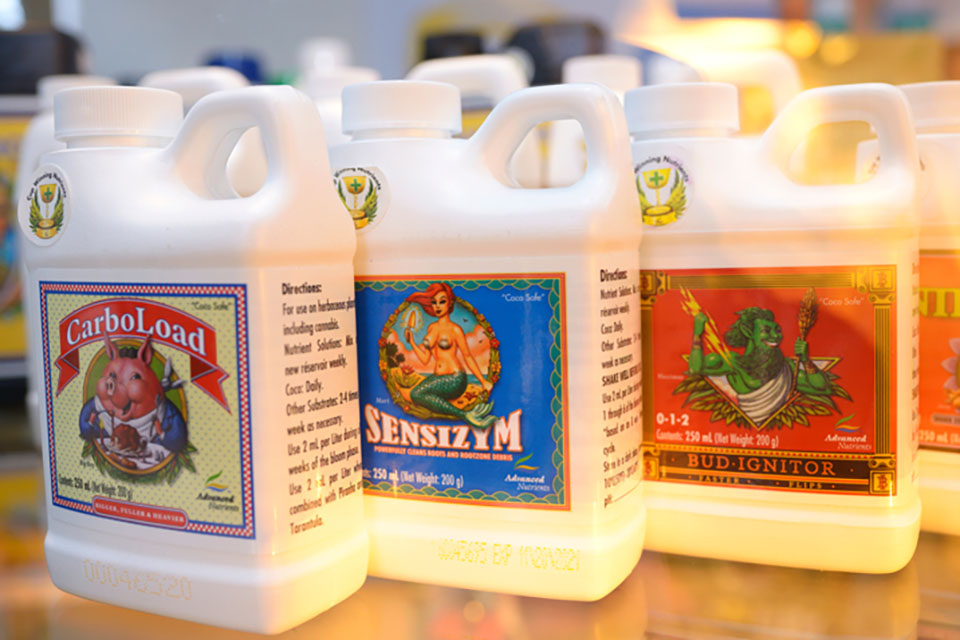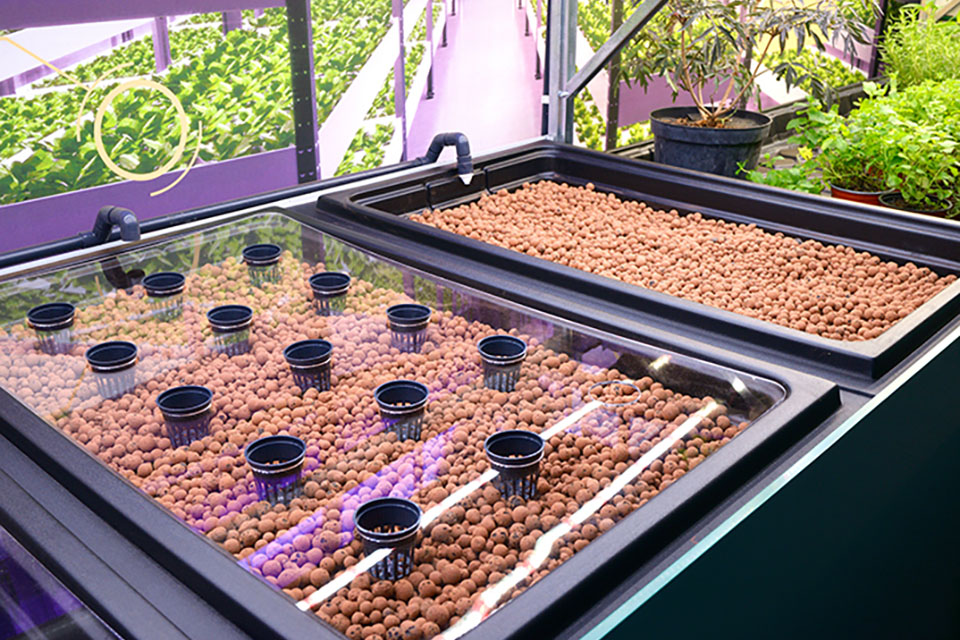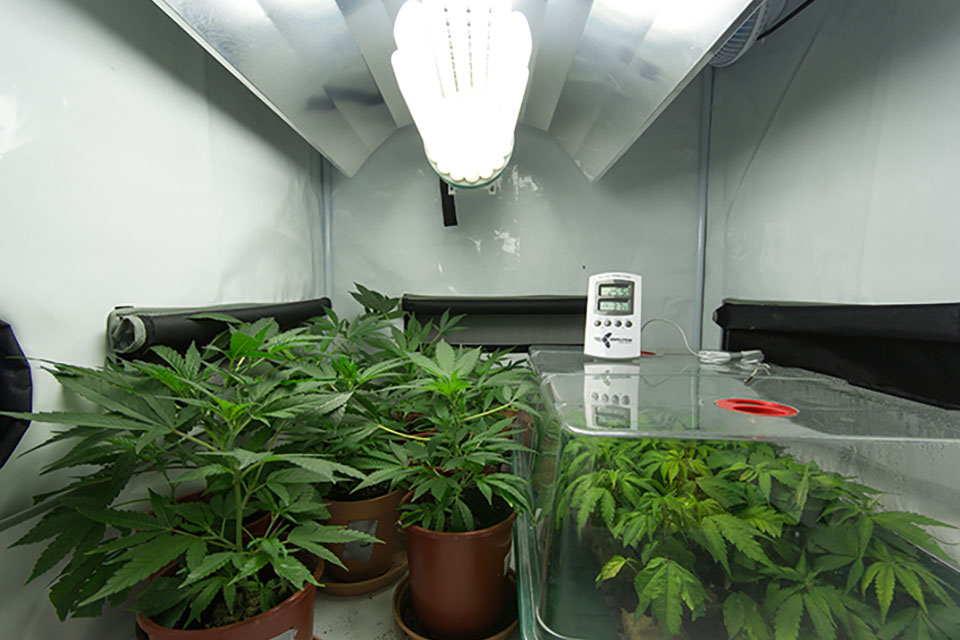
When it comes to growing cannabis, a well-chosen fertilizer is integral to optimal growth and yield. With the increasing popularity of sustainable practices, many growers are considering organic fertilizers over synthetic options. However, the benefits of synthetic fertilizers are hard to ignore.
To decide on the type of fertilizer to use for your plants, you have to consider the pros and cons of each option. Let’s take a closer look at choosing organic fertilizer over its synthetic counterpart and vice versa.
Organic Fertilizers for Cannabis
Organic fertilizer for cannabis is a type of nutrient source derived from natural materials, such as plant matter, animal waste, or minerals. While it’s free from chemicals, it can effectively provide essential nutrients to cannabis plants naturally and sustainably.
Advantages of Organic Fertilizer
Besides having an excellent effect on the growth of your plants, organic fertilizers come with such benefits as:
Nutrient-Rich Soil
Organic fertilizers improve the overall soil health by adding organic matter which enriches it with a wide range of essential nutrients.
Made from living organisms, these fertilizers naturally provide three primary nutrients: nitrogen, phosphorus, and potassium. They also enhance the soil structure, improving its water-holding capacity which is vital for cannabis plants.
Environmentally Friendly
As natural products, organic fertilizers have minimal impact on the environment. They decompose naturally, adding to the soil’s fertility without contributing to pollution or the depletion of natural resources.
These fertilizers also don’t leach or wash away easily, reducing the risk of water contamination.
Disadvantages of Organic Fertilizers
The organic nature of these fertilizers comes with several downsides that can play a key role in preventing you from achieving your cannabis-growing goals.
Slower Nutrient Release
Organic fertilizers decompose and release nutrients slowly. This is because they rely on soil organisms to break them down, a process that can be affected by factors such as temperature and moisture availability. This has an impact on the growth cycle and the flowering speed of your cannabis plants.
Risk of Contamination
While rare, organic fertilizers may introduce harmful bacteria or other contaminants to your garden. However, using well-composted organic matter and following safe gardening practices can significantly reduce these risks.
Synthetic Fertilizers for Cannabis
Synthetic fertilizers are man-made nutrient products that contain artificially created chemical compounds. These fertilizers are designed to provide specific concentrations of essential nutrients, such as nitrogen, phosphorus, and potassium, to support the growth and development of cannabis plants.
They are formulated to deliver nutrients in precise ratios and can be readily adjusted to meet specific plant requirements.
Advantages of Synthetic Fertilizers
Many cannabis growers choose synthetic fertilizers for their impressive benefits for the growth cycle. Other benefits include:
Rapid Nutrient Availability
Synthetic fertilizers are formulated to be readily available to the plant, providing a quick supply of nutrients. This allows for rapid growth and can be beneficial in circumstances where the soil is significantly deficient in certain nutrients.
Precise Nutrient Control
Synthetic fertilizers offer precise control over nutrient composition and concentration. They come with labels indicating their nutrient content, allowing growers to provide exact nutrients in accurate quantities based on each plant’s specific requirements.
Disadvantages of Synthetic Fertilizers
While synthetic fertilizers can help you achieve faster growth results and don’t usually strain your budget, they also have a few cons, including:
Soil and Environmental Impact
Frequent use of synthetic fertilizers can cause soil acidification, leading to a decrease in soil fertility over time. They are also more likely to leach into ground and surface water, posing risks to the environment.
Risk of Nutrient Imbalance
Over-reliance on synthetic fertilizers can lead to nutrient imbalances. Excess soluble salts from these fertilizers can potentially burn the roots and cause plant stress.
Comparing the Impact on Cannabis Growth
Organic fertilizers promote strong, steady growth by gradually releasing nutrients. They foster a healthy soil ecosystem, leading to increased microbial activity, which is beneficial for cannabis plant health and resilience.
Meanwhile, synthetic fertilizers can result in speedy growth but can also leave plants more vulnerable to pests and diseases. Over time, they may deplete the soil of natural nutrients and beneficial microorganisms, requiring the grower to rely on them increasingly.
Choosing the Right Fertilizer for Your Cannabis
For indoor growers with a controlled environment, synthetic fertilizers may provide more immediate results. Conversely, outdoor growers who aim to improve soil health may lean towards organic fertilizers.
Personal cultivation philosophies also play a role. Some growers adhere to organic practices for wider environmental reasons, while others prefer the precision offered by synthetic fertilizers.
Recommendations from Kind Seed Co
Kind Seed Co recommends using a combination of organic and synthetic fertilizers for a balanced approach to cannabis cultivation. Keep in mind that organic fertilizers are better for soil mixes while synthetic nutrients are great for hydroponic growing.
Streamlining Your Cannabis Growing Tactics
When it comes to growing high-quality cannabis, both fertilizer options come with pros and cons. To make the right decision, you have to evaluate your growing environment, budget, and personal cultivation goals. Also, pay attention to each plant’s specific needs.
At Kind Seed Co, we encourage you to make informed decisions and explore the best of both worlds to maximize your cannabis yield. Shop for your seeds today at kindseed.com and start your cultivation journey with confidence.



